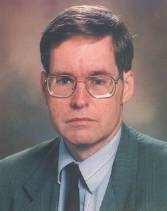October 2000
Completion Notes
By Michael J. Katin, MD
The 2000 ASTRO meeting approaches and this will probably be the final opportunity this year for those in our specialty to interact. Aside from taking antibiotics, we may also want to prepare by reflecting on the current status and future prospects for Radiation Oncology. This can be done by reviewing the economic articles in the Opinion section of radiotherapy.com, by familiarizing yourself with the positions of the Presidential and congressional candidates regarding supporting medical research and access to medical care, and by projecting your specific needs for adopting technical advances. You can then pretty much forget all this and plan what you want to see and where you want to go to eat in Boston because regardless of what we know we're still like lambs to the slaughter when pitted against the major forces in health care.
One solution is to stop trying to face this by ourselves and to align with other physicians with whom we share common interests and goals, a group which completes us, to borrow one of the famous phrases from the motion picture, "Jerry McGuire" (the other being, "Show Me the Money," ironically). Who completes us? Is the the diagnostic radiologists, with whom we have been aligned historically? Not really, since they now share as many characteristics with us as the manatee does with its relative, the rhinoceros (both are sort of grey). Maybe it's the medical oncologists, since both groups are dedicated to treating patients with cancer. There are two problems with this affiliation. First, we approach the cancer problem with two different philosophies, bringing up memories of other cooperative ventures such as between two groups of Christians (Huguenots and Catholics) and Muslims (Sunnis and Shiites) and rappers (East Coast and West Coast). Second, given the difference in size between the two specialties and the shrinking reimbursement pool it is probably a matter of time before the pseudopods start forming around us.
Perhaps the group that completes us is that confederation of physicians who address disease locally, whether they be surgeons or interventional internists. We should identify with practitioners who achieve physical contact with the enemy, whether it be with a scalpel or an endoscope, or with whom we can work in pinpointing the area of disease, such as with stereotactic localization and actual definition of a target. With these persons we share the dilemma of investing more and more time to carry out increasingly sophisticated treatment approaches while having the reimbursement dropping in terms of return per hour of work.
Once we recognize this and side with our true compatriots we will have the opportunity to make more of an impact on the direction of health care, at least until gene therapy finally makes its breakthroughs. Until then, I ask you: have you hugged your urologist today?
email: mkatin@radiotherapy.com
